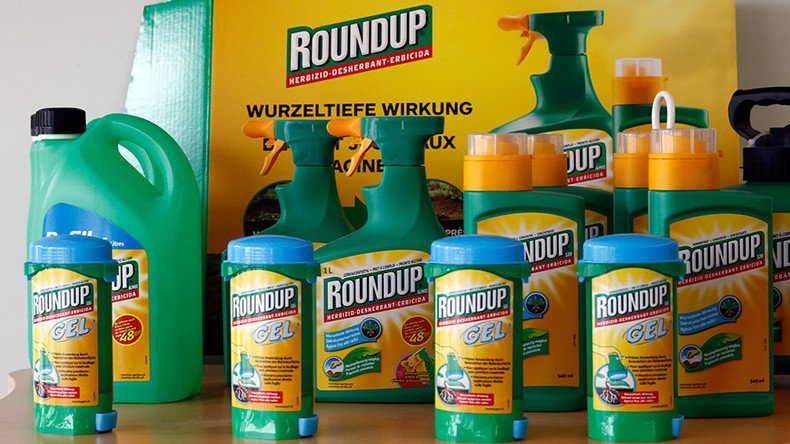No correlation between popular Monsanto pesticide and cancer ‒ study

A pesticide used by agribusiness giant Monsanto does not cause cancer, a new study states. The findings are likely to impact a legal battle that placed glyphosate, a key ingredient in the company’s popular weed killer, on a list of cancer-causing chemicals.
The study, published in the Journal of the National Cancer Institute Thursday, found no correlation between glyphosate “and any solid tumors or lymphoid malignancies overall, including non-Hodgkin Lymphoma and its subtypes,” according to Reuters. Researchers did find “some evidence of increased risk of acute myeloid leukemia among the highest exposed group” but said it was “not statistically significant.”
The study’s findings contradict the 2015 conclusion by the World Health Organization's (WHO) cancer research unit; which stated that the active weed-killing ingredients in Roundup and other herbicides were "probably carcinogenic to humans."
Monsanto's new chemical halted after causing rashes https://t.co/6iEHqiUdfNpic.twitter.com/2MAEZDWV2p
— RT (@RT_com) November 2, 2017
As a result of the WHO study, California announced in June 2017 that Monsanto would be required to put a label on its products warning customers it contains cancer-causing chemicals.
Two US agricultural workers have recently sued Monsanto, claiming the company’s weed-killer herbicide caused their cancers. They further accused the biotech giant of pressuring regulators to downplay the health risks from Roundup.
Monsanto’s lawyers have argued that WHO ignored two major studies that found no link to cancer. Leaked documents from August 2017 show Monsanto attempted to ‘kill’ research on its Roundup weed killer. The company also reportedly influenced EPA officials to conceal information about the cancer risks.
Monsanto is facing an additional lawsuit by growers in Mato Grosso, Brazil’s largest soybean producing state. They have asked a court to cancel Monsanto’s Intacta GMO seed patent, claiming irregularities, including the company’s alleged failure to prove it brings technological innovation.
Earlier this month, Monsanto stopped the launch of a chemical designed to be applied to crop seeds. Multiple reports showed the new chemical caused skin irritation.
"There have been limited cases of skin irritation, including rashes, that appear to be associated with the handling and application of this seed treatment product," Brian Naber, US commercial operations lead for Monsanto, said in a letter to customers about NemaStrike.
The study’s finding could impact the company’s presence in Europe. EU countries voted on the issue on Thursday but failed to reach agreement on a five-year extension proposal.
More than a million Europeans have signed a petition against Monsanto's weed killer Roundup over fears that it causes cancer. It's license in Europe expires on December 15, and EU officials haven’t extended it.
The EU had offered a 12 to 18-month extension of the license to give more time for further scientific study by the European Chemicals Agency (ECHA). A proposal to renew the glyphosate license for 15 years failed at two previous meetings.













